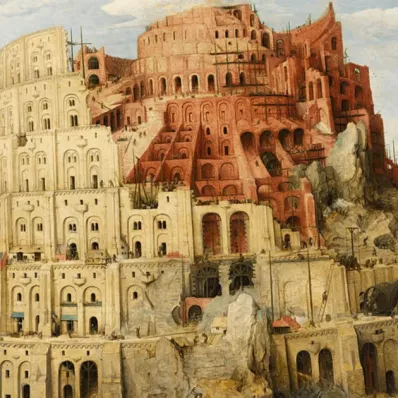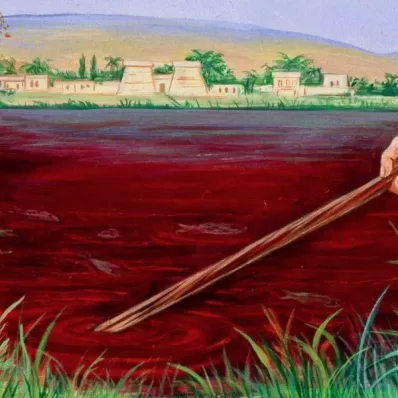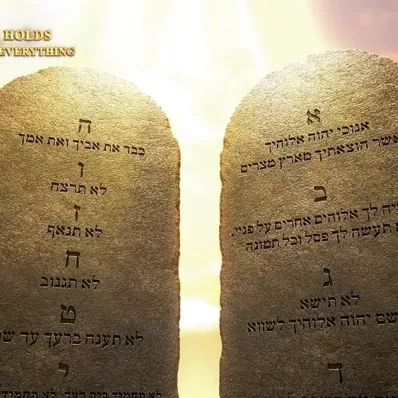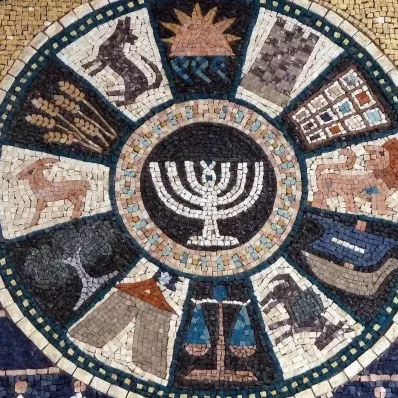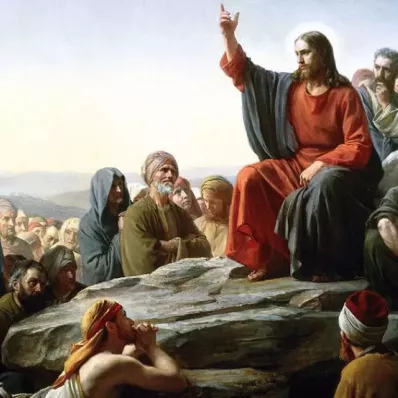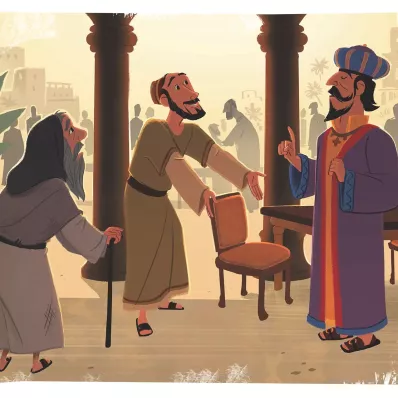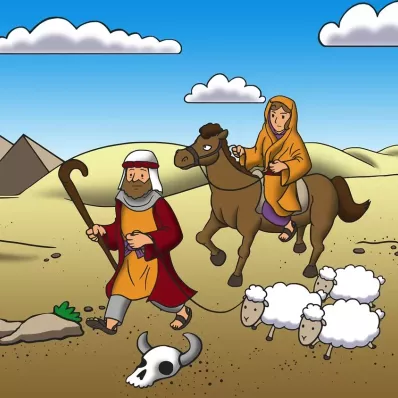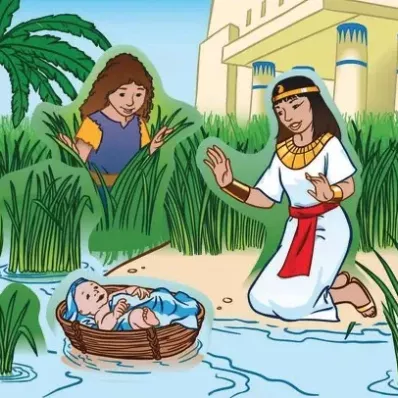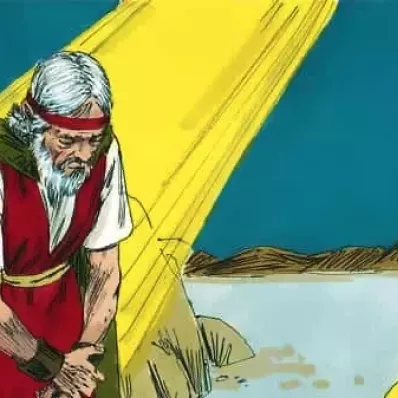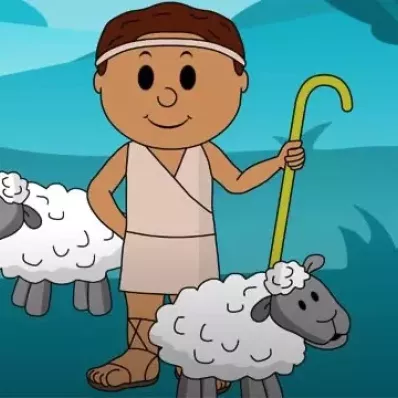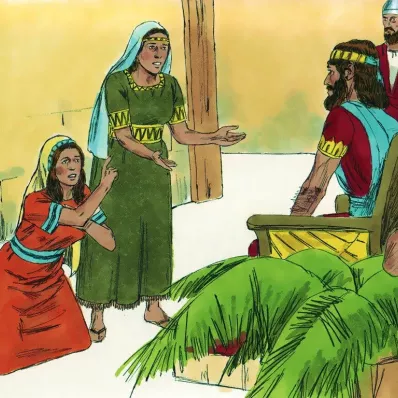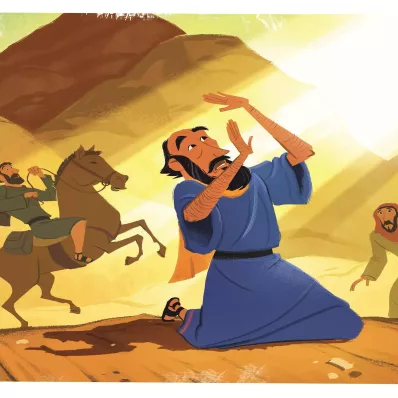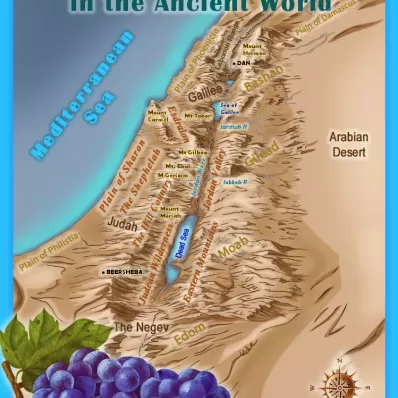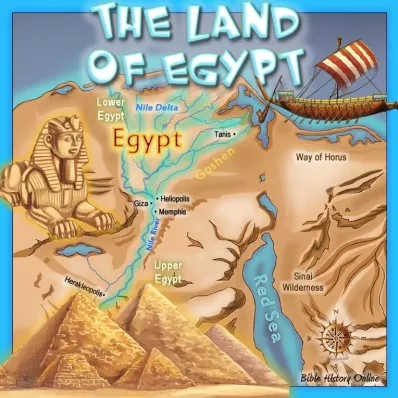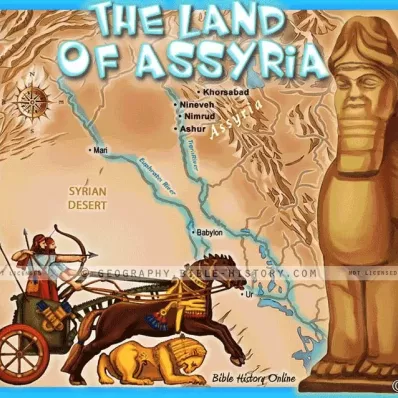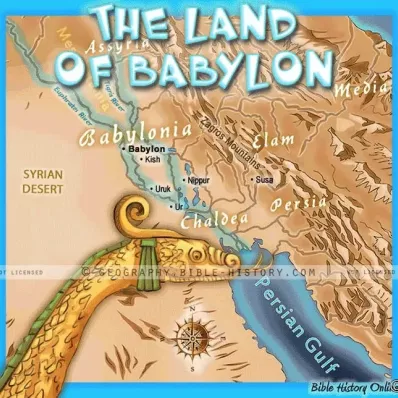Gibeon
hill-city, "one of the royal cities, greater than Ai, and all
the men thereof were mighty" (Josh. 10:2). Its inhabitants were
Hivites (11:19). It lay within the territory of Benjamin, and
became a priest-city (18:25; 21:17). Here the tabernacle was set
up after the destruction of Nob, and here it remained many years
till the temple was built by Solomon. It is represented by the
modern el-Jib, to the south-west of Ai, and about 5 1/2 miles
north-north-west of Jerusalem.
A deputation of the Gibeonites, with their allies from three
other cities (Josh. 9;17), visited the camp at Gilgal, and by
false representations induced Joshua to enter into a league with
them, although the Israelites had been specially warned against
any league with the inhabitants of Canaan (Ex. 23:32; 34:12;
Num. 33:55; Deut. 7:2). The deception practised on Joshua was
detected three days later; but the oath rashly sworn "by Jehovah
God of Israel" was kept, and the lives of the Gibeonites were
spared. They were, however, made "bondmen" to the sanctuary
(Josh. 9:23).
The most remarkable incident connected with this city was the
victory Joshua gained over the kings of Israel (Josh.
10:16-27). The battle here fought has been regarded as "one of
the most important in the history of the world." The kings of
southern Canaan entered into a confederacy against Gibeon
(because it had entered into a league with Joshua) under the
leadership of Adoni-zedec, king of Jerusalem, and marched upon
Gibeon with the view of taking possession of it. The Gibeonites
entreated Joshua to come to their aid with the utmost speed. His
army came suddenly upon that of the Amorite kings as it lay
encamped before the city. It was completely routed, and only
broken remnants of their great host found refuge in the fenced
cities. The five confederate kings who led the army were taken
prisoners, and put to death at Makkedah (q.v.). This eventful
battle of Beth-horon sealed the fate of all the cities of
Southern Israel. Among the Amarna tablets is a letter from
Adoni-zedec (q.v.) to the king of Egypt, written probably at
Makkedah after the defeat, showing that the kings contemplated
flight into Egypt.
This place is again brought into notice as the scene of a
battle between the army of Ish-bosheth under Abner and that of
David led by Joab. At the suggestion of Abner, to spare the
effusion of blood twelve men on either side were chosen to
decide the battle. The issue was unexpected; for each of the men
slew his fellow, and thus they all perished. The two armies then
engaged in battle, in which Abner and his host were routed and
put to flight (2 Sam. 2:12-17). This battle led to a virtual
truce between Judah and Israel, Judah, under David, increasing
in power; and Israel, under Ish-bosheth, continually losing
ground.
Soon after the death of Absalom and David's restoration to his
throne his kingdom was visited by a grievous famine, which was
found to be a punishment for Saul's violation (2 Sam. 21:2, 5)
of the covenant with the Gibeonites (Josh. 9:3-27). The
Gibeonites demanded blood for the wrong that had been done to
them, and accordingly David gave up to them the two sons of
Rizpah (q.v.) and the five sons of Michal, and these the
Gibeonites took and hanged or crucified "in the hill before the
Lord" (2 Sam. 21:9); and there the bodies hung for six months
(21:10), and all the while Rizpah watched over the blackening
corpses and "suffered neither the birds of the air to rest on
them by day, nor the beasts of the field by night." David
afterwards removed the bones of Saul and Jonathan at
Jabeshgilead (21:12, 13).
Here, "at the great stone," Amasa was put to death by Joab (2
Sam. 20:5-10). To the altar of burnt-offering which was at
Gibeon, Joab (1 Kings 2:28-34), who had taken the side of
Adonijah, fled for sanctuary in the beginning of Solomon's
reign, and was there also slain by the hand of Benaiah.
Soon after he came to the throne, Solomon paid a visit of
state to Gibeon, there to offer sacrifices (1 Kings 3:4; 2 Chr.
1:3). On this occasion the Lord appeared to him in a memorable
dream, recorded in 1 Kings 3:5-15; 2 Chr. 1:7-12. When the
temple was built "all the men of Israel assembled themselves" to
king Solomon, and brought up from Gibeon the tabernacle and "all
the holy vessels that were in the tabernacle" to Jerusalem,
where they remained till they were carried away by
Nebuchadnezzar (2 Kings 24:13).

